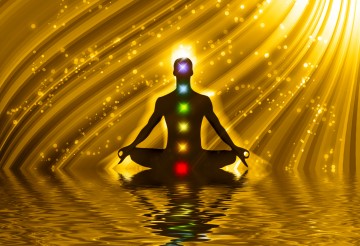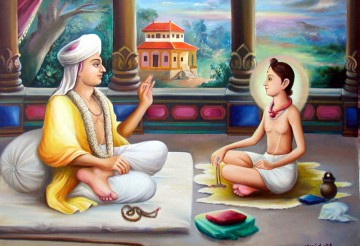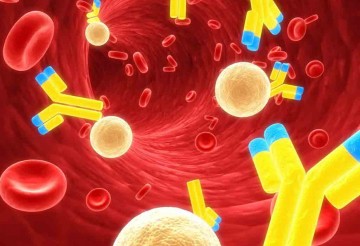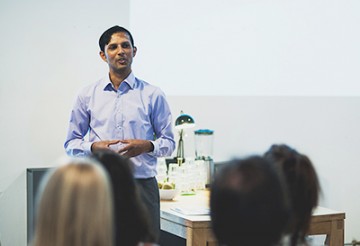Yoga itself is not a religion. Most religions teach what to do, but yoga teaches how to be. The main teaching of yoga is that man’s innermost nature is divine but that he is unaware of this and mistakes himself for his body and intellect – both exist within the realm of matter and therefore are subject to decay and death.
 All man’s misery is a consequence of this false identification. Yoga leads one to the direct experience of his inner Self, his true identity. With such realisation comes liberation from all human imperfections.
All man’s misery is a consequence of this false identification. Yoga leads one to the direct experience of his inner Self, his true identity. With such realisation comes liberation from all human imperfections.
There are many paths towards realisation of Self, the word yoga is used generically for all these paths. Examples are karma yoga, bhakti yoga, jnana yoga, kundalini yoga and raja yoga. Raja yoga which we will focus on here is concerned with three dimensions: the physical, the mental and the spiritual. By practicing the methods of raja yoga one masters these three dimensions and is led to full realisation of Self.
Raja yoga is also known as ashtanga yoga, the eightfold path, consisting of eight angas, or limbs: yama, niyama, asana, pranayama, pratyahara, dharana, dhyana and samadhi. The first five are the external limbs and the last three internal. The internal limbs focus directly on control of the mind. Samadhi state is the state of self-realisation. Here the mind is transcended and one becomes aware of Self and is ultimately united with it. This state is characterised by sat-chit-ananda or existence, consciousness, and bliss. By expanding his consciousness, the practitioner becomes one with the ultimate reality.
Raja yoga is therefore, a systematic and scientific discipline that leads one to ultimate truth. It leads finally to liberation. If incorporated into modern education, raja yoga would equip our children to deal with conflicts, frustrations and turmoil inevitable in all modern societies. By this we can realise our fullest potential for creative thought and action. We can transcend our human limitations and experience our true nature.
Source: The Royal Path: Practical Lessons on Yoga, Swami Rama









